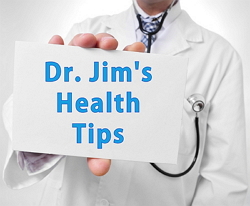A major misconception originated from the consideration of the brain and body as a machine, which as a purely engineering comparison is correct, but although our body obeys mechanical laws, it is structurally biological and functions mechanically. Machines wear out giving them a mantra: “Use it and lose it”.
Differently than purely mechanical systems, biological systems constantly repair their wear, cell by cell; cells that die are constantly replaced according to the extent the body determines according to usage. The mantra changes to “Use it or lose it.” Actually, the more you use it the more you boost it. WOW.
We all know from experience that as we do something physically or mentally, we become better at it. But this was when I was young—as you age you amend. No, wrong, laws of nature remain the same, whatever your age. You will regain whatever you otherwise would lose by doing; else, there would be no reason for physical therapy and rehab.
This brings us to another health axiom: the secret of health is how much is enough, and the secret of disease is how much is too much. A Chinese proverb exemplifies this point: “A knife honed to its sharpest will dull soon”. Lifetime health, especially physical, is not a sprint, it is an ultramarathon. Slow balanced improvement would be best but one must be careful not to overdo. This is recommended for those of us who are average; there is no scientific evidence that elite endurance athletes suffer from their extremes.
The important, take-home, lesson of aging is to maintain your quality of life, which should be our goal. Realize your quality of life means being able to do the things you want to do, when you want to do them, granting self-sufficiently. Run in the park, travel and vacation, garden, manage your affairs, interact with others meaningfully, attend reunions or religious services, go for a night out or to a sporting event, and other activities are the functions of life that give life worth.


